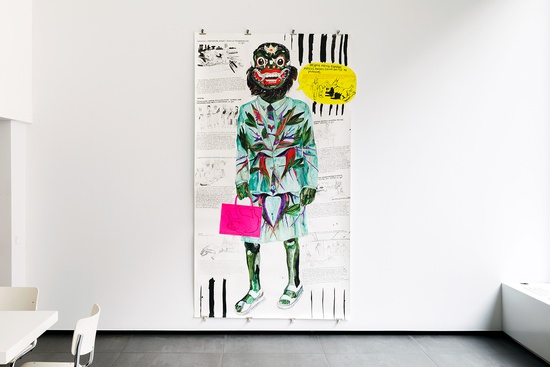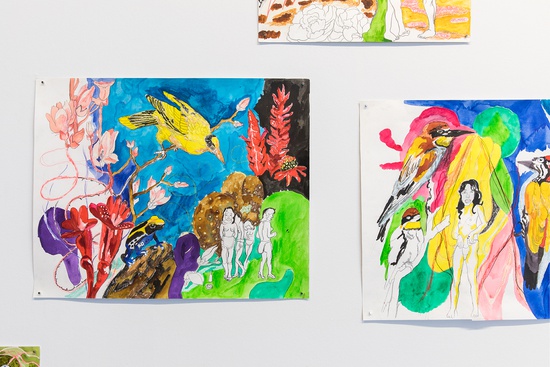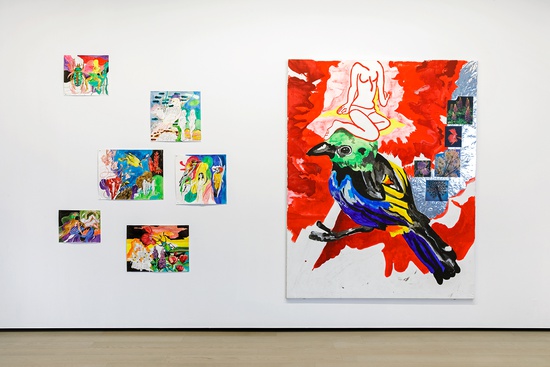Various works
Charlotte Schleiffert
(2019)
She created the large drawing exhibited in the front space during a residency at the Cemeti Arthouse in Yogyakarta, Indonesia. On the left side, she has written about animals and hunting in Indonesia, having gathered information from the a historical library, which has many old Dutch books. On the right side, she describes contemporary animal suffering, which she read about in the newspapers during her stay in Indonesia.
One of the texts in her drawing relates to Indonesian history:
Right up to the end of the colonial period, crocodile hunting was encouraged where necessary (the skins were worth a great deal) . Crocodiles inhabited the area stretching from the beach to further up the river, but had to be eliminated as they occasionally attacked people or cattle. In some areas, there were people known as ‘crocodile charmers’ or ‘crocodile whisperers’, whose help was sought if a crocodile had killed someone. The ‘whisperer’ summoned the crocodile, which, when it appeared, was first reprimanded and then killed. In the eyes of the local people, killing a crocodile without good reason was not done, while ‘guilty’ crocs had to be punished.
In her most recent works, drawings and paintings, Schleiffert brings man, beast and nature even closer together. She began this series of drawings last summer during a stay in Paris. Schleiffert: ‘I now feel a much greater love for nature; I’m a lot more involved with it. It’s a sort of naturalism.’ That is clearly evident in these works, in which man becomes one with nature; man has become a part of the whimsical landscape, stripped of pretensions, naked. He has become part of a greater whole, a seemingly paradisiacal world which, upon closer inspection, is both unpleasant and sometimes sinister.
References to Adam and Eve in Paradise make us wonder whether man is, in this case, a victim or indeed a perpetrator. Fascinated as she is with bondage portraits by Japanese artist Araki, Schleiffert reflects on contemporary images of martyrdom (conscious or otherwise), in which sexuality, guilt and the lost paradise come together.



